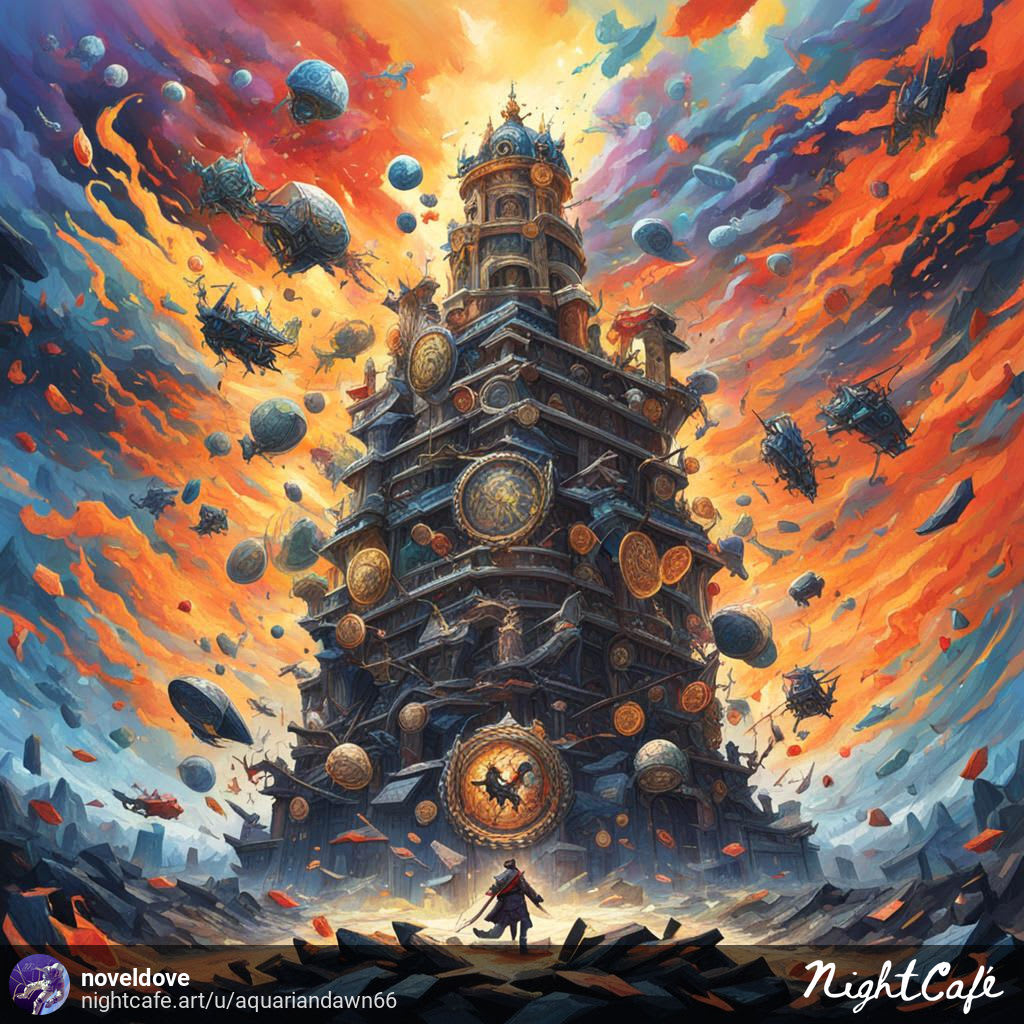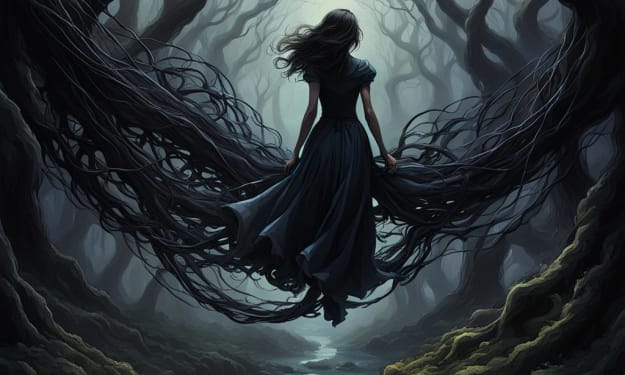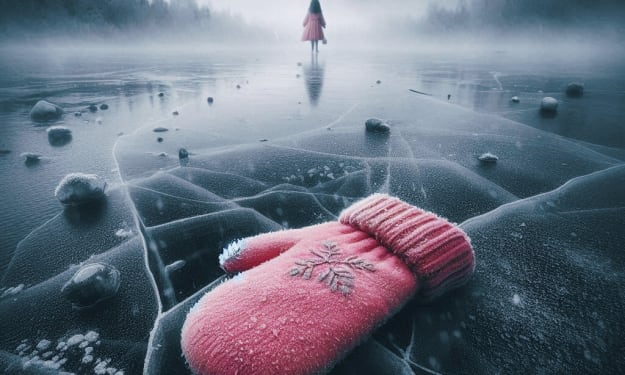The Chaos Theory: If every tiny change from the past creates our present, then wouldn't every aspect of our present create our future, too.
I dream in Chaos

Believe me or not believe me, just remember that every decision you will make now will affect the future in unimaginable ways.
I have never met Brian Klaas, but 'Every night between midnight and 3am', the author comes out to parlay his wits as he visits me in my dreams". He then proceeds to offer me advice on the chaotic nature of our existence.
As he shares the space within my dreams, he begins to ask questions and gives answers.
Will we ever be able to fully understand our own existence?
Kurt Vonnegut offers us good advice on how to live fully within that uncertainty: “A purpose of human life, no matter who is controlling it, is to love whoever is around to be loved.”
History is often made by seemingly insignificant moments that don’t always make sense.
Can we tame an untamable world, our lives a quixotic and fanciful quest for ever more efficiency.
Do you recall watching all those movies about travelling back in time, when we are always given the same warning: be sure not to touch or interfere with anything. That even one squished bug could irrevocably change the future. Do you quake at the fear of writing yourself out of existence.
Then shouldn't we think like that about the present?
If every tiny change from the past creates our present, then every aspect of our present creates our future, too.
Chaos theory is a definitively established scientific truth about how complex systems are sensitive to tiny changes – that small flukes can have enormous effects. It’s not really a theory; it’s been proved over and over again. It’s why we can’t predict the weather more than a week in advance. If our calculations are off by even a tiny amount, all bets are off.
We are subject to the same laws of physics as everything else – but we just pretend it isn’t true. Perhaps it’s because what might happen to our future selves if we squished the wrong bug is so overwhelming that it’s easier to pretend the world works differently for us, but does it?
"The atomic bomb was dropped on Hiroshima rather than Kyoto because a US government official holidayed in Kyoto 19 years earlier; Trump may have decided to run for president in 2016 after Obama publicly humiliated him with one joke in 2011; the Arab spring was sparked by a vegetable vendor in central Tunisia who decided to set himself on fire. We’re told to focus on big, obvious variables – the “signal” – while ignoring “the noise”. But the noise – the buzz of the complexity of society – often profoundly alters our world".
We are shaping the future…right now
A beautiful, plausible explanation of how we came into existence
"In a broader sense, our species only exists because of a series of flukes. Two billion years ago – and never again – a single bacterium bumped into a prokaryotic cell and ended up inside it. It evolved into a mitochondrion, making complex life possible, from grass and trees to snails and humans. One hundred million years ago, a shrew-like creature got infected with a retrovirus, eventually leading to the placenta and, by extension, the reason why we don’t lay eggs. Sixty-six million years ago, a tiny oscillation in the Oort cloud flung an asteroid towards Earth, wiping out the dinosaurs, allowing mammals to flourish. If the asteroid had been slightly delayed, humans wouldn’t exist. Everything we’ve achieved would be gone, but for a distant oscillation and a giant space rock. The story of our existence is often written in the margins".
But those are just the examples we can observe. The more profound and bewildering reality is that we’re living in “sliding doors” moments constantly, totally unaware of how our paths through life – and the trajectory of our societies – are constantly branching, infinitely, as a result of tiny, accidental shifts. We ignore these invisible pivots, the moments we will never realize were consequential, the near misses and near hits that are unknown to us because we have never seen, and will never see, our alternative possible lives.
"Science, especially the field of complex systems, knows this is how the world works. Social science mostly ignores it. Instead of facing reality head-on, we’ve invented a fake conception of our world that writes out all the wrinkles of life because they’re hard to model. A misleading image is reflected back at us from these models, from economics to public health to politics. In models – always wrong, but sometimes useful – every cause has a straightforward effect. Every big event has a big cause, never a tiny bit of “noise”.
But when we live according to models that reduce the complexity of our chaotic existence into a neat and tidy version of it, we start to believe that we have more control than we actually do. Because if it is swayed by a few key variables we can manipulate, then we have control. But if the world is swayed by squished bugs and populist presidents can emerge from a single joke, well, then we’re bewilderingly out of control.
It follows that our big decisions are but one factor in the trajectory of our lives. That is a profoundly uplifting idea. When you lose at roulette, you don’t kick yourself for being a failure, you accept the arbitrary outcome and move on. Recognizing that often meaningless, accidental outcomes emerge from an intertwined, complex world is empowering and liberating.
We should all take a bit less credit for our triumphs and a bit less blame for our failures.
When we try to distil every waking effort into a struggle for control and ratcheting optimization, it’s the essence of being human that’s dissolved away. That’s why it feels, to many of us, like we are living “a checklist existence”.
The paradox, then, is that we control nothing, but we influence everything. As chaos theory proves, in an intertwined system, every action has an unforeseen ripple effect. Nothing is meaningless. And that yields a profound truth: that everything we do matters.
You are the contingent culmination of the entirety of cosmic history. Everything had to be exactly as it was for you to exist, just as you are, in this precise moment, in this exact world. That leads us to a simple, wondrous idea: that we all are the living manifestation of 13.7bn years of flukes.
Can it all be as simple as Kurt Vonnegut advises: “A purpose of human life, no matter who is controlling it, is to love whoever is around to be loved.”
That is only one purpose, but surely there must be far more to our human existence. Love is fleeting. Yet when one finds a deep connecting love, everything seems to fall into place completely. Maybe, love, after all, is the key to decoding existence. Just another proffered purpose put forward by this author.
There still remains the many unanswered questions?
Unfortunately for me, there is no end to this dilemma of the ages, so my dream will never have a specific resolution, it remains an ongoing sentient conundrum.
Part fiction, but mostly mainly truth in this story/dream.
...........................................................
Excerpts from story by Brian Klaas. Brian Klaas is associate professor in global politics at University College London and the author of Fluke.(John Murray).
Further Reading
Determined: Life Without Free Will , Robert M Sapolsky (Vintage)
Chaos , James Gleick (Vintage)
Humanly Possible , Sarah Bakewell (Vintage)
About the Creator
Novel Allen
Clouds come floating into my life, no longer to carry rain or usher storm, but to add color to my sunset sky. ~~ Rabindranath Tagore~~
Enjoyed the story? Support the Creator.
Subscribe for free to receive all their stories in your feed. You could also pledge your support or give them a one-off tip, letting them know you appreciate their work.






Comments (3)
Whoaaaa, there's just so much food for thought here! You really hit this one out of the park. My mind is blown!
"...we control nothing, but we influence everything..." -- Very powerful insight! Novel Allen, thanks for the interesting ideas that this insight sparks in my mind.
"we’ve invented a fake conception of our world that writes out all the wrinkles of life because they’re hard to model." interesting thoughts! Yeah, I agree we simplify everything about the world into vocabulary words and good/bad opinions. We have much less free will and are much less in control than we think, and are more pulled along by the currents flowing around us. Mediation and spirituality makes us more aware of the current.